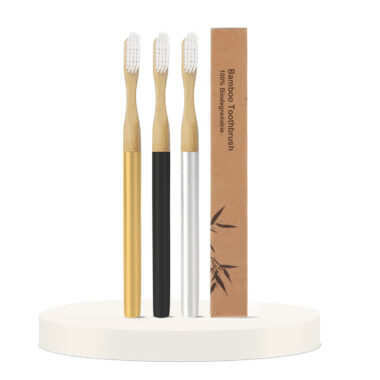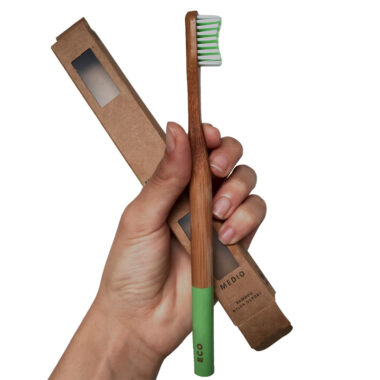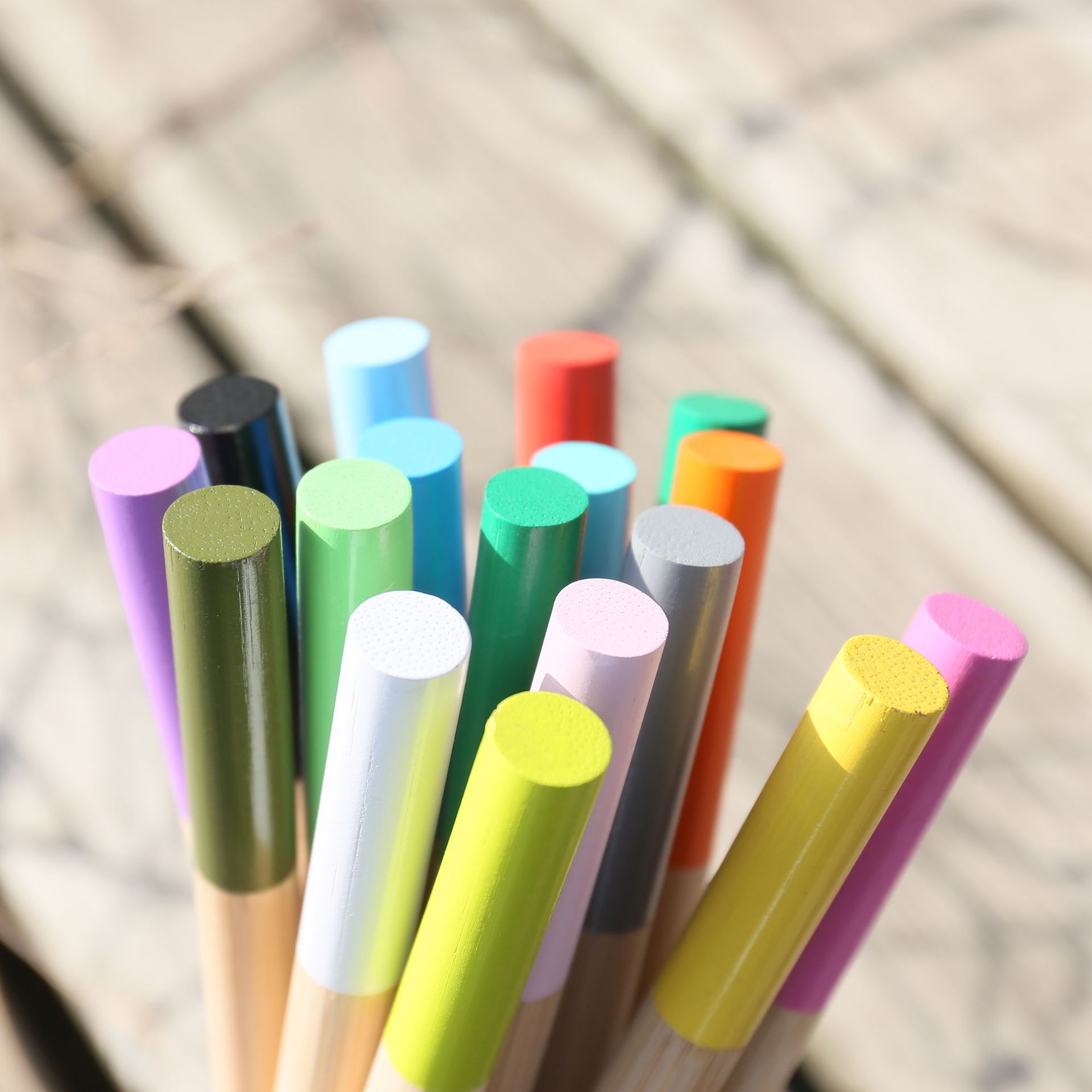Great question! Here’s a clear comparison of bamboo vs. plastic toothbrushes regarding their impact on the planet:
Bamboo Toothbrush
Pros:
- Biodegradable handle: Bamboo handles naturally decompose, reducing landfill waste.
- Renewable resource: Bamboo grows quickly without needing pesticides or fertilizers.
- Lower carbon footprint: Bamboo cultivation absorbs more CO₂ compared to plastic production.
- Less microplastic pollution: Bamboo doesn’t shed microplastics into oceans.
Cons:
- Bristles often still plastic: Most bamboo toothbrushes use nylon bristles, which aren’t biodegradable.
- Packaging and transport: Sometimes bamboo brushes are shipped far distances or use plastic packaging.
- Durability: Bamboo handles may break or degrade faster than plastic.
Plastic Toothbrush
Pros:
- Durable and lightweight: Plastic handles last longer and are more flexible.
- Cost-effective: Typically cheaper and widely available.
- Recyclable in some areas: Some specialized recycling programs accept plastic toothbrushes.
Cons:
- Non-biodegradable: Plastic takes hundreds of years to break down in landfills.
- Microplastic pollution: Plastic bristles and handles contribute to microplastic contamination in oceans.
- Fossil fuel use: Made from non-renewable petroleum resources, increasing carbon footprint.
Which is Better for the Planet?
Bamboo toothbrushes generally have a much smaller environmental impact because of their biodegradable, renewable handles and lower carbon footprint. However, to maximize benefits, look for:
- Bamboo brushes with biodegradable or compostable bristles (e.g., plant-based).
- Minimal or plastic-free packaging.
- Proper disposal (composting the handle, recycling or disposing of bristles properly).
Plastic toothbrushes remain problematic due to their persistence in the environment and microplastic pollution.
Summary:
If you want to reduce plastic waste and help the planet, bamboo toothbrushes are usually the better eco-friendly choice — especially when paired with eco-conscious bristles and packaging.
















